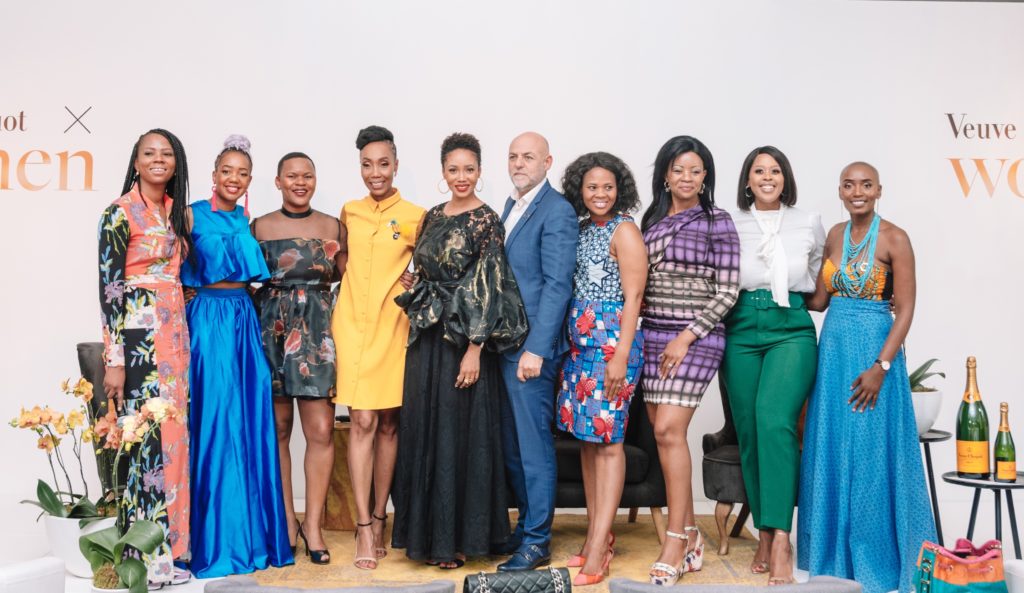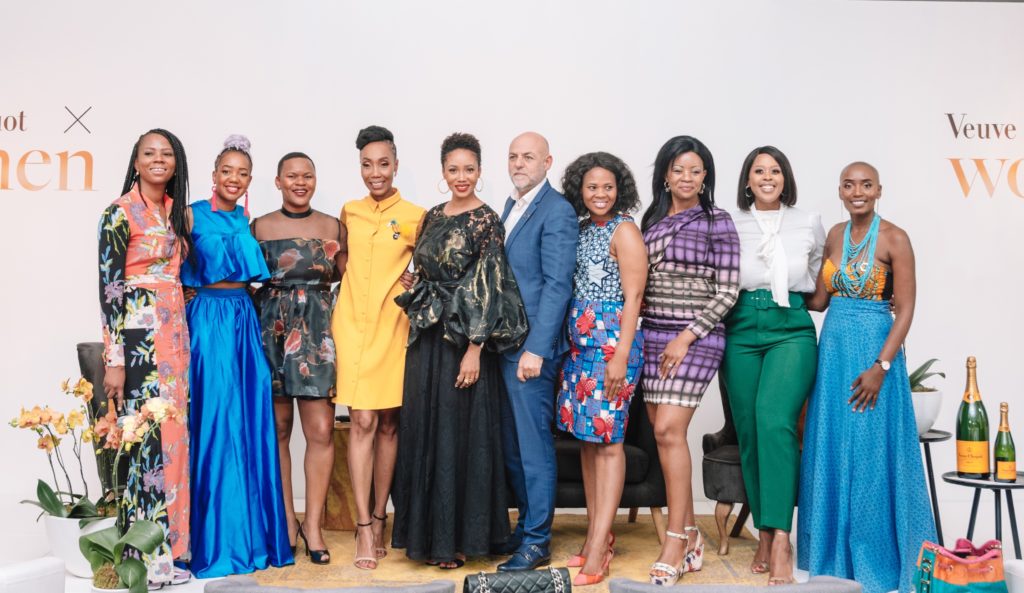
As female entrepreneurship around the world continues to increase, it has become clear that there isn’t a lot of data available about women entrepreneurs and “wantrepreneurs”. Until now.
To address this lack of valuable data, Veuve Clicquot recently commissioned a study in five different countries, including South Africa, to kick start important conversations around this topic.
With female entrepreneurship core to the history of Maison Veuve Clicquot- with the widow Madame Clicquot a brave example of female entrepreneurship during the early 1800’s- the company is clearly rooted in empowering female leaders. This is clear from the fact that Maison Veuve Clicquot has not only commissioned this study, but also introduced the Veuve Clicquot Business Woman Award in 1972, and the New Generation Award in 2014. Both of these were created to honour women entrepreneurs. In fact, overall, Maison Veuve Clicquot has recognized more than 350 women in 27 countries worldwide.
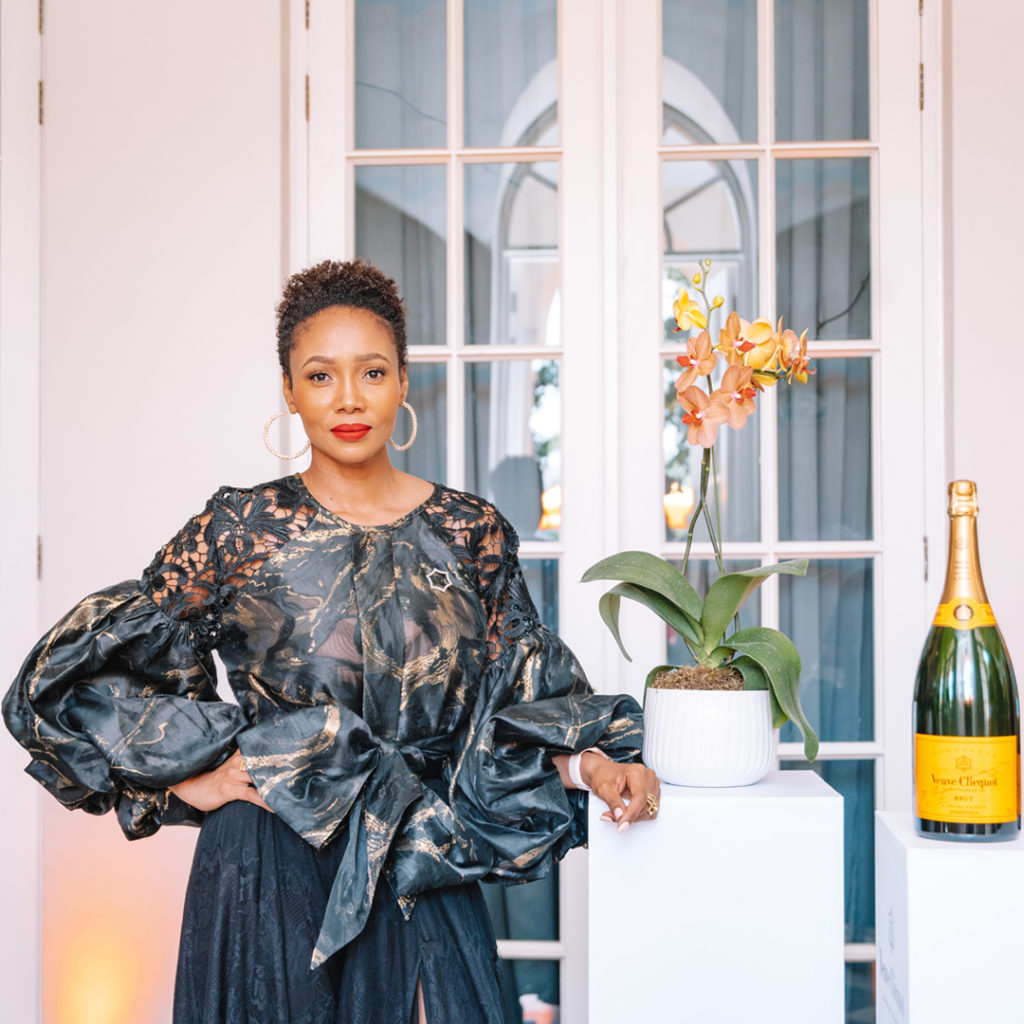
This is why it couldn’t have been more appropriate
This event hosted guest speakers like MC Azania Mosaka, Johanna Mukoki, Amanda Dambuza, and Lala Tuku, and served as a way to discuss the findings of the barometer and network with other like-minded entrepreneurs over a glass or two of Veuve Clicquot. Above all, the discussion of these statistics was a way to engage and inspire a new generation of entrepreneurial women (both entrepreneurs and “wantrepreneurs”).
Stats to Be Proud Of: Veuve Clicquot International Female Entrepreneurship Barometer Findings
Overall, according to the study, 70% of South African women aspire to become entrepreneurs, which is a very inspiring statistic and a boldness that we are proud to support at Future Females.
To give more of an insight into the study and how it was discussed at the event, the following points will highlight some of the knowledge gained from interviewing both men and women across South Africa, France, United Kingdom, Japan and Hong Kong. In this discussion of the highlights of the study, we’ll also mention some of the insights shared at the Veuve Clicquot x Women event about South Africa in particular.
1. Female entrepreneurship is widespread amongst women and seems to be a way for us to access employment and support our families
As the first keynote speech by Travel with Flair CEO Joanna Mukoki highlighted, female entrepreneurship is a way for many women to gain control in their lives and provide a livelihood for themselves and their families. As she said in her talk, one way to empower female entrepreneurs, who are also mothers, is to “…focus on the fact that a happy mom is a mom who is living her full potential and her best life.”
Mukoki also shared some very entertaining stories of having to leave a board meeting to go and pump breast milk and taking her small children around the world with her on business trips. All of her anecdotes showed that even though being a high powered working mom has its challenges, it can be done without having to sacrifice professional success.
This kind of insight couldn’t be more timely, as the barometer findings show that 43% of women surveyed were female entrepreneurs and that 70% of the total women surveyed wanted to be entrepreneurs. Overall, South Africa showed the highest number of female entrepreneurs surveyed, which is remarkable.
2. Even though there are high levels of self-confidence in the female entrepreneurship community, we still perceive it to be harder for us to be entrepreneurs than men
This finding highlights a lot of hesitation and imposter syndrome that many of us feel when starting a business (which is apparently felt by 24% of women and 29% of men). However, interestingly, while we perceive entrepreneurship to be easier for men, it seems that this trepidation is felt across genders, with 78% of women aged 20-29 willing to give entrepreneurship a try, and men only slightly less hesitant at 81%.
Therefore, while it might seem that men have it easier, it seems that this perception might be skewed, and they are just as scared.
To add to this point, guest speaker Amanda Dambuza, who spoke on one of the panels at Veuve Clicquot x Women, says that to be successful as a female entrepreneur, you have to focus on the opportunities, not the challenges. As she also added, “…if you think everywhere you go you will just have hurdles and obstacles, then that’s what you will find.”
This advice comes from a daring entrepreneur who cashed out a portion of her pension plan six years ago to launch a R100-million business with R80 000, so this is truly inspirational advice. This also reflects one of the findings of the study, which is that in South Africa, 44% of women feel that the risks of entrepreneurship are worth the rewards of success (vs. 46% of men).
3. We feel like we can count on our partners for support, but we’re still worried about how entrepreneurship will affect our family life
With a combination of imposter syndrome, fear of how we will be perceived, and the perception that entrepreneurship is easier for men, 56% of female wantrepreneurs confirm that fear of failure could prevent them from taking the leap and becoming an entrepreneur. On the other hand, 54% of men say they have felt that fear too.
This once again highlights that statistically, both men and women pretty much feel the same kind of fear when thinking of starting a business, so the nervousness is shared across the board. Thankfully, most women entrepreneurs do feel supported, even if running their own business does feel threatening to the stability of family life.
However, despite the fact that statistically, everyone feels scared about starting a business, 67% of women entrepreneurs said in the study that they have already experienced some kind of business failure, which they attribute to their gender. This is something that needs to be addressed.
To speak more to the finding that women feel more worried about how entrepreneurship will affect their family life, this seems to have more to do with challenging established gender roles (which is clear from many of the statistics in the study).
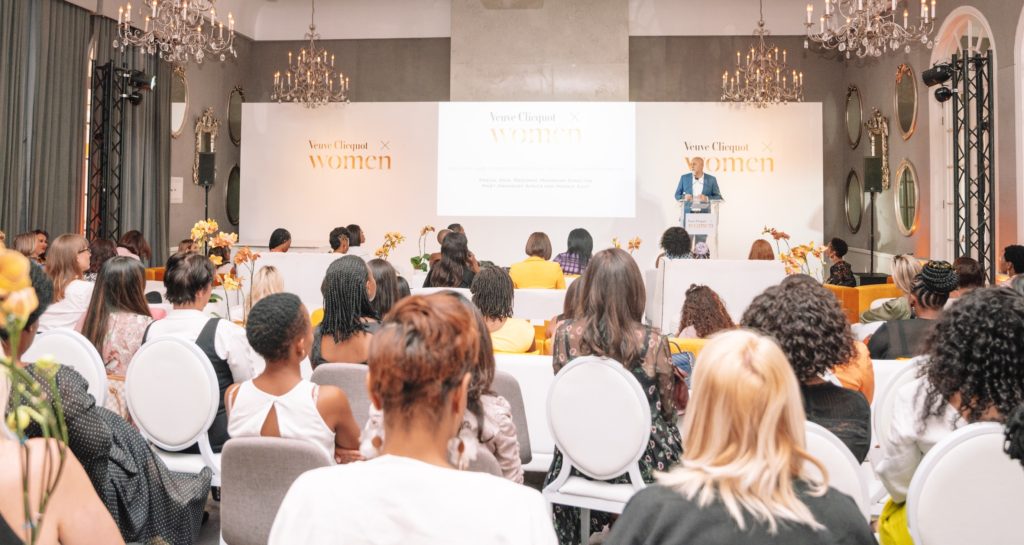
4. Female entrepreneurs feel more likely to be criticized and that they need to adapt more male behaviour in order to succeed
As women, it can be difficult for us to feel like we’re on an equal footing when operating in a largely male-dominated professional landscape.
However, as many of the panel discussions highlighted, collaboration across genders was noted, as well as the need to focus on your service offering and the benefit that it can provide to your customers. As Thato Kgatlhanye, founder of the Rethaka Group, said in her keynote, it is critical to define what success looks and feels like for you, “…because if you aren’t aligning your personal values with your business, the challenges will become insurmountable.”
However, it seems we still face obstacles when it comes to being supported financially, as 41% of female wantrepreneurs and 52% of South African female entrepreneurs say that is is easier for men to raise money, which relates to the fact that 69% of South African female entrepreneurs feel they need to show more authority than men in order to be respected (compared with 72% in France, 63% in the United Kingdom, 54% in Japan and 71% in Hong Kong).
As if this wasn’t a stumbling block already, 56% of South African female entrepreneurs believe that when women entrepreneurs exhibit assertive behaviour they are seen as “bossy”. Unfortunately, this show of assertiveness and authority doesn’t seem to help female entrepreneurs raise funds either.
5. Female entrepreneurs in the media industry are the most iconic female entrepreneurs
From all of the statistics, it is clear that South Africa has a strong culture of entrepreneurship. This is reflected in the fact that in South Africa in particular, 78% of women wish to become entrepreneurs. However, on the flip side, women attach less importance than men to being their own boss (70% vs 78%).
When it comes to role models in entrepreneurship, in South Africa, 91% of female wantrepreneurs feel that women entrepreneurs are inspiring. Yet only 47% of women and 42% of men can name a successful female entrepreneur. However, the most popular names that were mentioned are popular culture figures like Oprah Winfrey, Basetsana Khumalo and Bonang Matheba, who are the top 3, which shows that media personalities are the most well-known.
As some of the findings suggest, there is a predominance of female entrepreneurs in the beauty and food industry, so perhaps boosting female entrepreneurship is also about celebrating and giving exposure to women who are already successful entrepreneurs in other industries.
6. Female entrepreneurs are looking for support from mentors and networks
One of our favourite findings from the study is that over 80% of female entrepreneurs believe that they need the support of a network of female entrepreneurs in order to succeed, which speaks right to the core of what we’re passionate about at Future Females.
As the point above suggested, now more than ever, the world over, women need to be expanded and inspired by other women entrepreneurs, and other entrepreneurs in general. In fact, this also means not only being inspired by successful women like the ones we mentioned above, as well as Nomsa Nteleko, Veronica Motloutsi, Sandiso Sibisi and Kholisa Thomas, who also spoke on the panel. It also means inspiring and expanding each other’s horizons, through joining our community and networking through the online Future Females membership.
This sense of collaboration and shared willingness to inspire and overcome obstacles was felt at the Veuve Clicquot event on the 24th of October in Johannesburg, both during and after the event when many women stayed on to chat in the beautiful gardens after the formalities.
This community-spirit is one that we work daily to inspire and that we are happy to work together with brands like Veuve Clicquot on in building up female entrepreneurs around the world, and keeping tabs on all the obstacles we face in achieving our dreams so that we can overcome them, together.
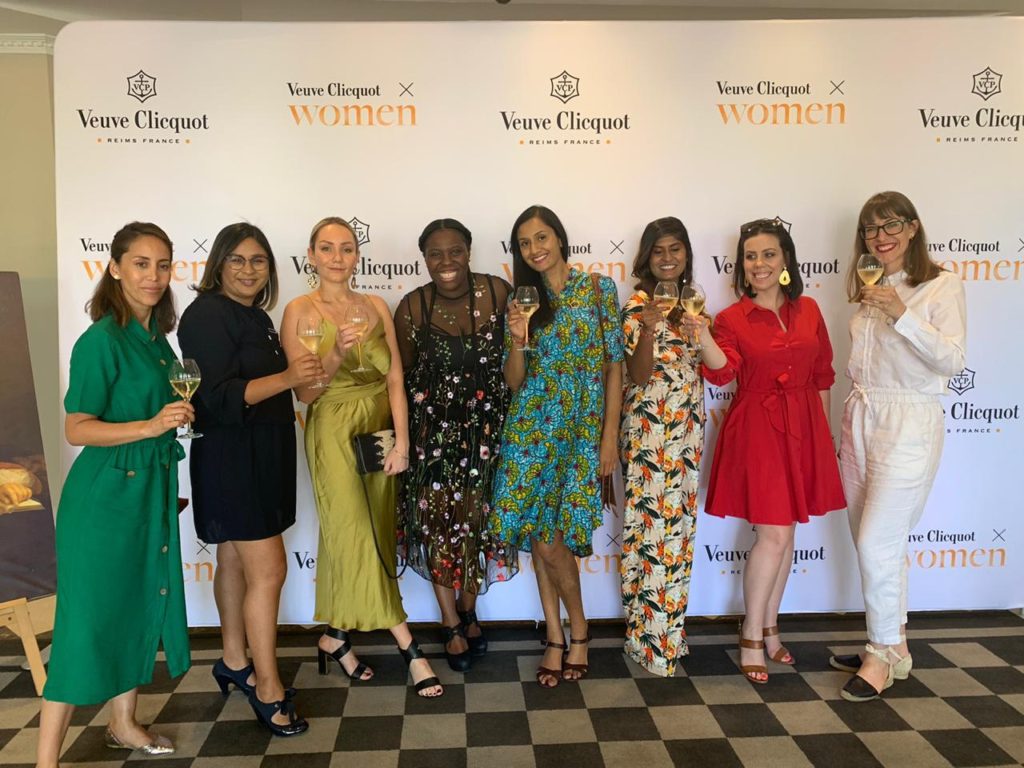
For more information about Veuve Clicquot International Women Entrepreneurship Barometer visit: https://www.veuveclicquot.com
Follow Veuve Clicquot Social Media Pages:

